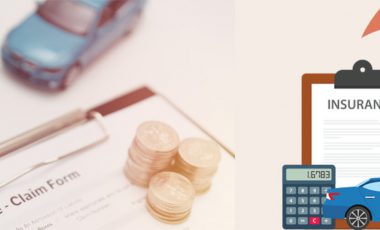Understanding Car Hit and Run Coverage: How Insurance Can Help
When it comes to car hit and run incidents, uncertainty and frustration often take the wheel. Picture this: you return to your parked vehicle, only to find it damaged, with no note left behind by the responsible party. As your heart sinks, questions race through your mind. Who did this? Will I have to cover the repairs myself? Fortunately, you’re not alone, and there is a solution.
Car hit and run insurance is designed to protect you in such unfortunate circumstances. Whether you’re the victim of a hit and run accident or witness one, having the right coverage can make a world of difference. But does car insurance cover hit and runs? The answer lies in understanding your policy and the options available to you.
In this comprehensive guide, we’ll delve into the intricacies of hit and run coverage, exploring the problems you may face, agitating the frustration and uncertainty, and ultimately providing solutions to help you navigate the aftermath with confidence. Let’s dive in and empower ourselves with knowledge that can save the day!
What should I do after a hit-and-run?
- Step 1: Analyze the scenario that you are in: In certain cases, you won’t be able to locate the person or car that caused a hit-and-run. Do not pursue the other automobile if you see it driving off. The well-being and security of both you and your passengers should come first. Assess the condition of everyone and your vehicle after stopping. Call 911 if someone is critically hurt.
- Step 2: Inform the police: If everyone is okay, make a quick call to the police and submit an accident report within 24 hours of the occurrence or finding the damage; doing so can speed up the claims procedure and aid the police in solving the hit and run.
- Step 3: Check for witnesses if any: Look to see if there were any witnesses who could describe what they saw to the police or if the incident was recorded on video. Usually, the other driver’s insurance will pay your losses and injuries provided they can be recognized and are properly covered.
- Step 4: Inform your insurance provider: Finally, whether or not you intend to make a claim for the hit-and-run, notify your car insurance company about the occurrence as soon as you can. You can start capturing images of damages and injuries at the accident scene if you can do so securely.
What coverages would cover hit-and-runs?
Although there isn’t one “hit and run insurance claim” policy that can help, there are car insurance coverages. It is important to remember that you are going to require multiple coverage types in case of a hit-and-run accident that has caused injuries and physical damage. Below are some coverage types that might help you:
1. Uninsured driver
If you are involved in an accident and the at-fault driver does not have liability insurance, your uninsured motorist policy will cover your and your passengers’ medical expenses.
2. Medical payment
Medical payment coverage, generally known as MedPay, pays for medical expenditures if you or your passengers are hurt. In the event of a hit and run, it can be utilized.
3. Personal injury protection
The PIP coverage is almost similar to MedPay but it compensates for the driver and their passenger no matter who was at fault. Additionally, it can cover expenses like lost wages and child care related to accidents.
4. Collision insurance
If your car collides with another item, collision insurance will cover the cost of repair or replacement. Your deductible amount will be settled from the payout in case you claim for collision coverage for the hit-and-run damages. Even so, it can significantly reduce your out-of-pocket expenses. You should think about purchasing collision insurance even if you are not required to.
What impact would a hit and run have on my insurance policy?
If you are not at fault for a hit-and-run, you usually won’t be charged a fee, but making a claim may still have an impact on your policy.
Even when you are not at blame for an accident, your insurance company may or may not raise your policy’s rate. But, hit and run victims never lose their excellent driver discounts on their policy.
Do I have to pay a deductible when filing an insurance claim for a hit-and-run?
The specifics of the event and the kind of auto insurance you have will determine whether you have to pay a deductible for hit-and-run car insurance.
You may file a claim under your uninsured motorist bodily injury policy if you sustain injuries in a hit and run. There is no deductible associated with that coverage.
You could file a claim on your collision coverage if a hit and run damages your car. You would then be responsible for paying the collision coverage deductible yourself.
You can be required to pay numerous deductibles if you file a claim that includes multiple insurance policies (for instance, against your PIP coverage for injuries and against your collision coverage for auto repairs).
Frequently Asked Questions
-
Does hit and run damage insurance raise your policy cost?
Your insurance cost will rise if you are at fault in the accident. Secondly, hit and run will not raise your insurance cost if you are the victim but it will raise the cost if you file a claim.
-
Does liability insurance cover hit and run?
Your medical bills or auto repairs following a hit-and-run are not covered by your auto liability insurance.
-
Will my insurance go up if my car was hit while parked?
Even if your car was parked when it was hit, there is a potential that your rates would increase if you make a claim with your auto insurance provider.
-
Does insurance cover hit-and-run parked car?
If you have comprehensive coverage then only it will cover a parked car.

We generated 12,100,000+ Quotes (...counting), Helping People to Save Money and Time.
Editorial Guidelines: The above is meant as general information to help you understand the different aspects of auto insurance. This information does not refer to any specific auto insurance policy. Coverages and other features vary between insurers, vary by state, and are not available in all states. References to costs of coverages/repair, average or typical premiums, amounts of losses, deductibles, etc., are indicative and may not apply to your situation. We encourage you to speak to our insurance representative and to read your policy contract to fully understand your coverages.
Featured Posts

Cheapest Car Insurance After a DUI: Discover Wallet-Friendly Options

Cheap Liability-Only Car Insurance for 2024: Complete Guide

